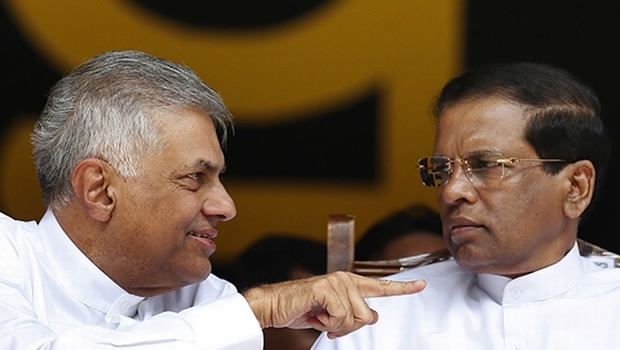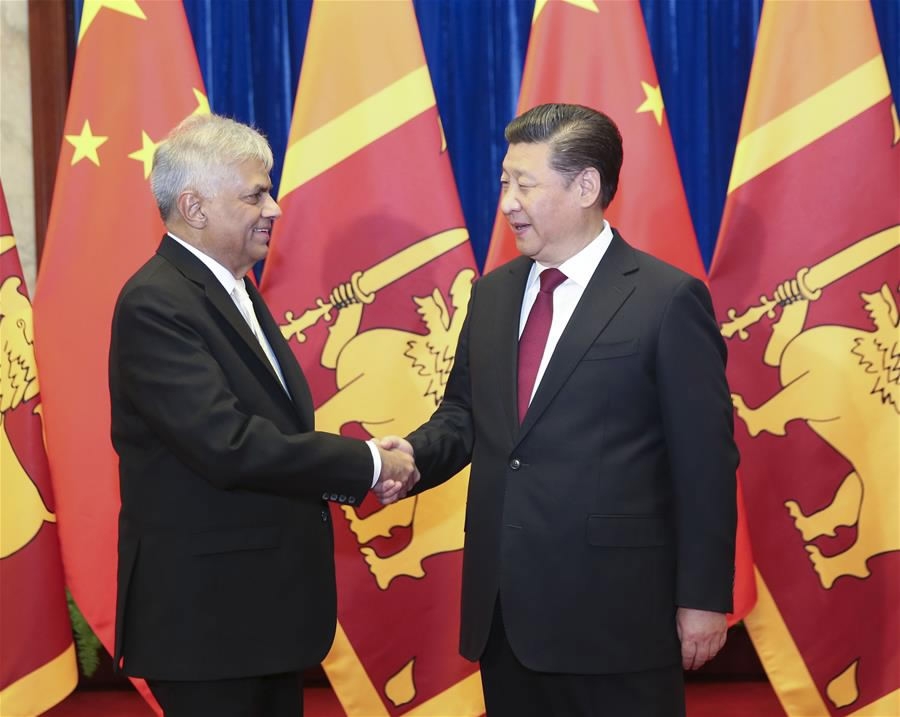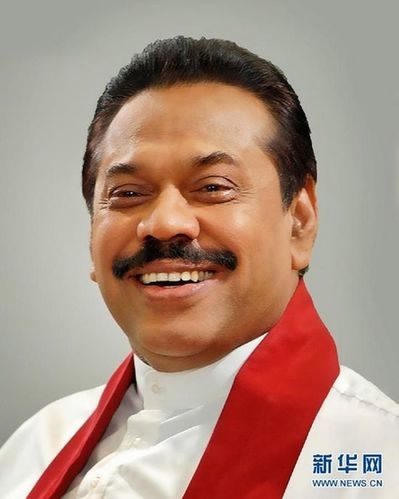
Politics
17:29, 14-Feb-2018
Special committee to examine future of Sri Lanka's embattled unity gov't
CGTN

Sri Lanka’s two ruling parties are scrambling to avert a political crisis after their unexpected loss in local elections last week undermined their already-bruised alliance and deepened the fissures within the country’s first national unity government.
President Maithripala Sirisena and Prime Minister Ranil Wickremesinghe, whose parties are coalition partners despite their rivalry, met late Tuesday evening for the third time since Sunday when election results were out. They agreed to set up a special committee to examine the future of the unity government, Housing Minister Sajith Premadasa said.

Chinese President Xi Jinping (R) shakes hands with Sri Lankan Prime Minister Ranil Wickremesinghe in Beijing, April 8, 2016. /Xinhua Photo
Chinese President Xi Jinping (R) shakes hands with Sri Lankan Prime Minister Ranil Wickremesinghe in Beijing, April 8, 2016. /Xinhua Photo
The decision came as members of Sirisena’s Sri Lanka Freedom Party (SLFP) called for the prime minister, who belongs to the United National Party (UNP), to step down.
"We need a new prime minister to carry forward a new parliament. We hope the president will decide on this in the next two days," Nishantha Muthuhettigama, deputy ports minister, was reported as saying.
UNP members, who hold the highest number of seats in the parliament, threw their weight behind Wickremesinghe and said they would form a government even if the SLFP exits the coalition.
The rift between the two parties was widened by the Feb. 10 elections which they contested separately. The SLFP and UNP were locked in a bitter fight in the run-up to the vote, which they lost to a party backed by former president Mahinda Rajapaksa.
Rajapaksa's party secured two-thirds of Sri Lanka's local authorities, winning control of 231 local councils out of 340 in total. Wickremesinghe's UNP took 34 councils and the SLFP nine. The remaining 66 councils were split among other parties.

Former president Mahinda Rajapaksa. /Xinhua Photo
Former president Mahinda Rajapaksa. /Xinhua Photo
The polls were widely seen as a vote on the government's agenda, and the thumping defeat of the ruling parties delivered a heavy blow to the coalition government, which has yet to make good on its promises of post-war reforms and anti-corruption measures.
Emboldened by the election outcomes, the country's former president challenged his successor's right to govern, and called for a snap general election.
"The government no longer has a mandate," said Rajapakse, who lost presidential and parliamentary polls in 2015 after ruling the island for a decade.
"People voted against the division of the country," he said.
The government has promised a new constitution that devolves power and pledged to facilitate an international probe into alleged war crimes committed in the final phase of a 26-year civil war that ended in 2009. It has so far struggled to deliver its vision amid divisions over leadership and mutual accusations of corruption between the president and prime minister.
The special committee will present a report within three days about the possibilities of continuing the unity government, The Hindu reported, citing unnamed sources.
(With input from agencies)
Source(s): AFP
,Reuters
,Xinhua News Agency

SITEMAP
Copyright © 2018 CGTN. Beijing ICP prepared NO.16065310-3
Copyright © 2018 CGTN. Beijing ICP prepared NO.16065310-3